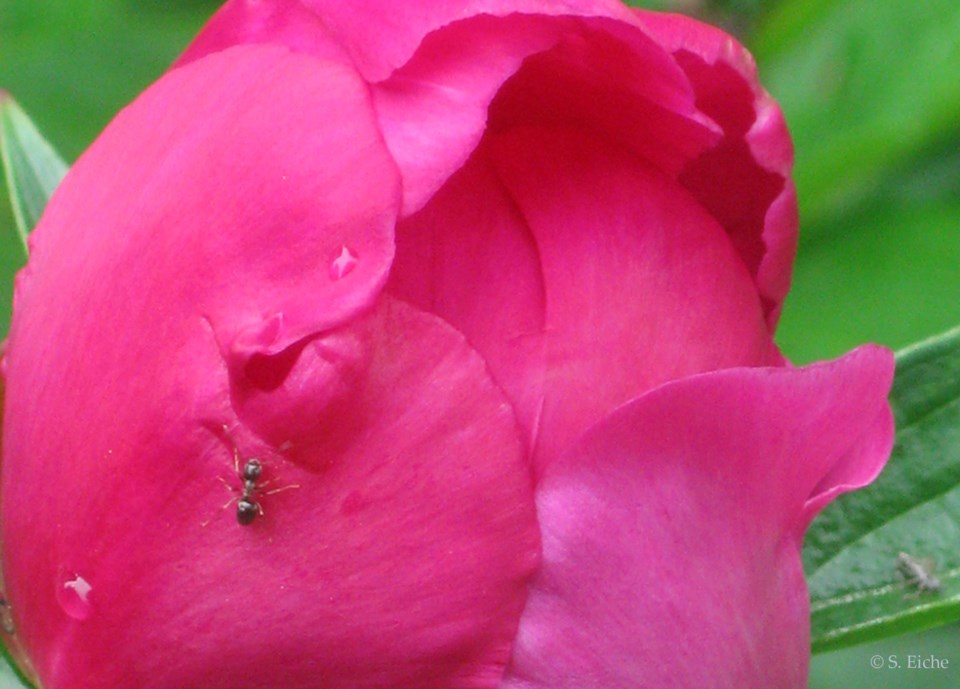My relationship with ants hasn’t always been what it is now. I never suffered from a fear of ants, known as myrmecophobia (from the Greek myrmex, ant, and phobos, fear), but I used to find them annoying whenever I encountered them in places where I felt they were intruding.
Then something happened to make me change my attitude. I was watching David Attenborough’s Life in the Underworld, a documentary (2005) about invertebrates (which account for an estimated 97 per cent of all animals). His closing remarks have stayed with me all these years. Attenborough based his words on what the American entomologist Edward O. Wilson (1929 to 2021) had said in his memorable address, The Little Things That Run the World, which opened the invertebrate exhibit at the National Zoological Park, Washington DC, on May 7, 1987, “The truth is that we need invertebrates but they don’t need us. If human beings were to disappear tomorrow, the world would go on with little change ... But if invertebrates were to disappear, I doubt that the human species could last more than a few months ... The earth would rot ... Within a few decades the world would return to the state of a billion years ago, composed primarily of bacteria, algae, and a few other very simple multicellular plants.”
Wilson was particularly interested in ants. He wrote a book about them that won the Pulitzer Prize in 1991. Scientists continue to build on Wilson’s research, and in September 2022 it was revealed that the total number of ants on earth is estimated to be 20 quadrillion (20 million billion).
That means there are about 2.5 million ants for every human. In fact, my backyard has always hosted plenty of them. It didn’t occur to me to take advantage of the opportunity to observe them until one summer, when I decided to remove a row of six paving stones from a raised garden bed. The stones hadn’t been touched since the day I’d laid them down, years before. I lifted the first one and discovered a riveting scene – the ground was strewn with hundreds of cocoons, like tiny, cream-coloured tic tacs; countless ants were rushing around to cart them off. It was the same situation under each of the remaining five stones.
Curious to know how this would play out, I laid the stones down again, waited ten minutes, and then lifted them. Every single cocoon, every single ant, had vanished. All that was left were holes in the ground, a couple of millimetres wide. I suspected they led to a network of tunnels down which the cocoon-carrying ants had escaped. Their zeal to save the new generation of ants was impressive. Their instantaneous, well-organized response was mind-boggling. I wish I knew where they’d taken them.
One day this past summer, when I was about to toss some bags of kitchen scraps into my compost bin, I found myself in a quandary. I’d opened the lid and found ants and cocoons covering the entire interior surface. What to do? I respected the ants and didn’t want to harm them. But I also wanted to be able to use my carefully tended compost in the garden.
I did a bit of research and found that an effective, but not lethal, ant-repellent is ground cinnamon. Ants don’t like the smell and will leave to search for another location. I tried it out on a crack in the carport where there was regular traffic of ants. It seemed to work. The ants departed and there were no lifeless bodies in sight.
I went ahead and sprinkled some cinnamon inside the compost bin. A while later I checked the bin. No sign of any cocoons or ants. I carefully lifted some of the leaves on top to make sure there were no dead ants buried beneath them – there were none. To the best of my knowledge, then, ground cinnamon is effective in encouraging ants to move on, when you feel it’s necessary to do so.
Of course, I’d much rather there were no need to send the ants away. E.O. Wilson has convinced me that our lives do depend on them (and other invertebrates), and that we have much to learn from them. A first step in this learning process would be to understand that nature is far more complex than most of us can imagine, and then to recognize that everything in it has a role to play. Wilson was spot-on when he claimed, in The Little Things That Run the World, “If human beings were not so impressed by size alone, they would consider an ant more wonderful than a rhinoceros.” I am humbled.
Sabine Eiche is a local writer and art historian with a PhD from Princeton University. She is passionately involved in preserving the environment and protecting nature. Her columns deal with a broad range of topics and often include the history (etymology) of words in order to shed extra light on the subject.



